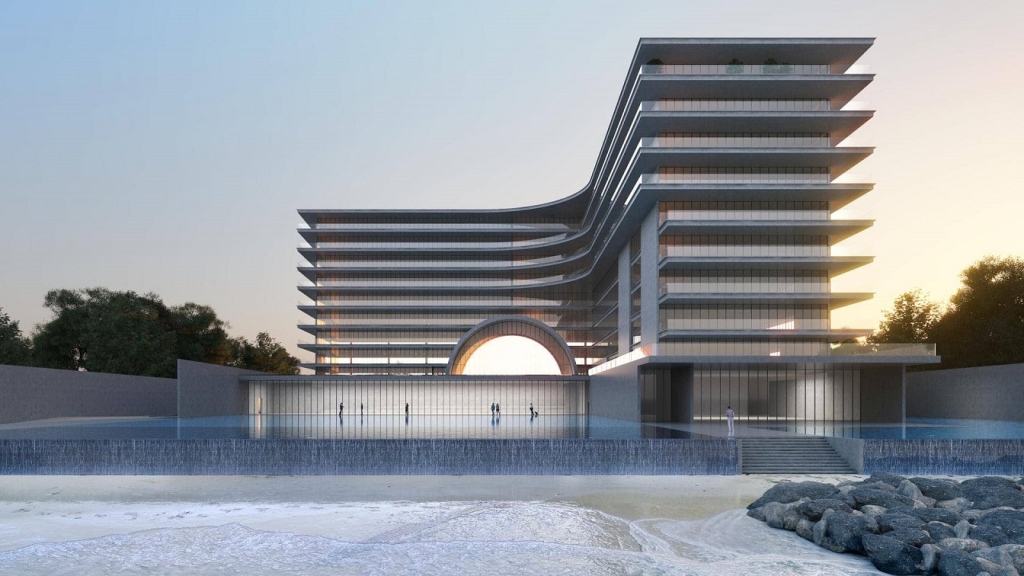
Dubai’s branded residences growth will be dominated by lifestyle brand collaborations
Dubai is now the leading city, globally for the development of branded residences, with the number of standalone projects (developments without a hotel component) set to rise to 54% of the market, accounting for 78% of new projects over the next four years, against a global projection of 41%.
Over the past 10 years (from 2014 to end of 2024) the branded residences sector in Dubai will have grown by a 410%, rising from ten projects in 2014 to 51 today. In the past five years alone, the growth in the sector has been 122% rising from 23 projects to 51 today.
The findings were unveiled by Riyan Itani, Founder and Director of property consultancy Global Branded Residences (GBR) at “The Future of Branded Residences” event in Dubai, where he presented the report following extensive research into the 121 open and pipeline projects within the emirate.
The event was hosted by GBR along with real estate branding specialist, Sectorlight and was sponsored by De Leeuw International.
Other statistics revealed about Dubai’s position as the global leader within the Branded Residences sector included:
- A five-year forecast projected to bring the total number of projects from 51 today to 121 by 2029, representing a growth of 137%.
- The number of hotel brands is due to reduce from 78% of the existing market of branded projects to 51% of the pipeline of developments due to be released up to 2028, resulting in a total market share (completed and pipeline) of 63% hotel brands.
- The pipeline of projects does not include any with townhouse typologies and will remain dominated by apartments.
- All pipeline branded projects will provide pools, spa and meeting rooms.
The forum saw some of the region’s leading real estate developers, consultants and hotel operators gather with representatives of lifestyle brands interested in understanding more about the burgeoning opportunities for their companies to enter collaborations. Alongside the main address by Riyan Itani, three panel discussions focused on the fundamental of successful branded development moderated by Riyan Itani, the cost of bringing a branded residence to market, led by De Leeuw’s Director, Robert Gill, and the power of brand essence in marketing residential projects led by Rich Stevens, Managing Director and Chief Creative Officer of Sectorlight.
Riyan Itani comments: “The GBR data shows that the number of hotel brands is due to reduce from 78% of the existing market of projects to 51% of the pipeline of developments due to be released up to 2028. This means hotel brands will only account for 63% of the total market by 2029, compared to 78% globally. This shows the market’s appetite for dynamic, lifestyle-driven branding while also reflecting the limitations experienced by the hotel brands, which are now not able to partner with developers due to existing relationships and territorial restrictions due to existing projects.
“In the absence of availability of tried-and-tested hotel brands, Dubai developers are increasingly turning to innovative and exciting new brands from the non-hotelier world, such as automotive (less than 1% of existing projects moving to 7% of the development pipeline) and fashion brands (10% of the exiting market are branded by fashion brands, while representing 36% of the pipeline) to add the edge in design and marketing.”
Rich Stevens, Managing Director & Chief Creative Officer of Sectorlight comments: “For lifestyle brands, the prospect of extending their customer reach and influence by bringing their brand alive through a physical environment offers amazing potential. For developers, a partnership with a world-renowned fashion, automotive or jewellery brand presents is a fantastic opportunity to ensure highly effective stand-out in a competitive marketplace. We are just seeing the tip of the iceberg right now, with projects like Mercedes-Benz Places by Binghatti and Armani Beach Residences by Arada.
“So far, we have seen ultra luxe brands appealing to High-Net-Worth individuals, but there will be more opportunities for mass-market household names to get on board and exploit the potential that bricks and mortar presents in enabling them to diversify and extend their brand’s purpose and essence”, he added.
Robert Gill, Director of De Leeuw International, sponsors of the event, adds: “Regionally it is a very exciting time for the Branded Residences market, with some diverse developments. Key to success is understanding the market, along with accurate financial data. The region is experiencing exceptional growth, impacting all aspects of the built environment. Our current and forecasted data will empower developers to make informed decisions, with confidence.”
The report by GBR also highlighted the geographical distribution of projects within the emirate. The Downtown and Business Bay zones are still the main focus for development, with a further 30 projects in the pipeline adding to the 15 projects in existence. The Marina/ Beachfront zone is due to stay consistent with another ten projects adding to the eight in existence. Dubai Internet City is due to add three projects to an area without any branded residences projects at present. Palm Jumeirah will see a drop in pace of new branded project adding five projects to the existing 12 branded projects over the next five years in this iconic urban-resort location.
-Ends-
























